|
This is it! The final post in this 30 day project, and it seems fitting that this links to the very first post I published as part of it. Yesterday’s teaching was all about focussing on cultivating positive intentions, and worrying less about actions. Well, today’s teaching is the natural extension of this, placing a little more emphasis on these actions that manifest themselves as a result of our intentions. “What we do today is what matters most” There are two key aspects to this teaching that make it perfect, in my mind, for the final post in this project. The first aspect takes us all the way back to Song 1, where we talked about the process of creating an initial intent to pursue happiness. The chain went as follows: Learning -> Conviction -> Determination -> Action -> Effort There have been 29 posts in this Happiness x Music Project, all showing us a variety of ways that we can cultivate happier mental states. These 29 posts have all been concerned with the first three parts of the chain - learning, determination and conviction. Yesterday’s post in particular focussed on creating a genuine determination and conviction - or in other words an intention - which defines how we act. This final teaching, then, is essentially not really a distinct teaching in itself. It says that we have spent this time learning about how to be happy - all that remains now, is to go out and put it into practice. “Happy is as happy does” This leads to the second aspect of today’s teaching, which is about making the most of the present. With the pandemic, a lot of us are keeping one eye on the future, thinking about when this will all finally be over. This inevitably means it can be difficult to stay in the moment. But the present is all we have, and I touched on this in Song 6, which covered the teaching that all we need is the mind. If anything, we can use the knowledge that there is a deadly virus out there to bring our attention back to the present. Because now more than ever, we have no idea what lies around the corner. In the Great Plague of Athens, it was reported that, contrary to what you would expect, people’s happiness levels generally increased. It’s thought that this is because the future was suddenly thrown into doubt, so all they could do was make the most of the present day. This second aspect of today’s teaching is perhaps the most important. It's not just about what we do in relation to what we’ve learned about happiness - it’s about what we do now, today, in this moment. “Steal a slow dance in a rain storm And a kiss from who you love Laugh and live with a half-full cup” Buddhism says we should find whatever it is that makes us happiest, and completely immerse ourselves in it. The popular Japanese concept of ‘ikigai’ is based on this idea that when we are entirely absorbed in what we are doing, we discover little pockets of happiness. This is ultimately what Buddhist meditation is all about - absorbing ourselves in the here and now by being mindful of each in-breath, and each out-breath. “It damn sure ain't in the lookin' back on the stuff you never did Sometimes, you're gonna feel that, but life is better when Happy is as happy does” It’s a pleasing coincidence then that the album on which today’s song appears is called Here and Now (or perhaps Kenny Chesney was simply so inspired by this project that he made a whole album especially for this last post…). “When it's all black clouds, find the sun ‘Cause happy is as happy does” Finally, before I sign off on the last post of this project, I have a confession to make… I know I set this up as 30 days, with 30 teachings, and 30 songs. However… because this is the last post, I thought it was only right to make it a little special. Therefore, I’ve included one more ‘bonus’ song. Yes, I realise it's another Kenny Chesney one. But it’s a song that means a lot to me, and I always turn to it whenever life throws me a curveball - and I think we can all agree that this whole pandemic is more like a straight-up boomerang than a curveball. “And she looked back over her shoulder Pointed at the sign hanging up on the wall It said, 'Everything's gonna be alright'” It might not be something to be found in any specific Buddhist teaching, but I think it’s something we all need to hear during times like these, just to reassure us that there is a light at the end of the tunnel, and it will be alright in the end. “There ain't no doubt, it's gonna work out” In Song 17 we covered the idea that ‘change is the only constant’. I think it helps to remember that no matter how scary or hopeless the situation might be, it’s not going to last forever. We will be able to meet loved ones again, we will be able to go out and watch concerts and sports matches, and we will be able to return to normal life. So I want this to be the final message of the project: “Everything's gonna be alright” I just want to end by saying a massive thank you to everyone who’s either taken part or simply read the daily posts - the support this has received has been truly overwhelming. Even if the project has given only one person a little something to lean on or something to help pick them up during these crazy times, then it will have accomplished its goal.
Also, if you’ve been making your own Happiness playlist, please feel free to share it with me - it would be great to see which songs you chose! And one last time... Here's to happiness! Maxim Mower
0 Comments
This takes us right back to the post that kicked off the project, which was all about how in order to start acting with effort in a way that is conducive to our own happiness, we have to first learn about what we should do, and then cultivate a conviction and determination to pursue these happy states of mind. As I hinted at in that first post, underlying this chain is the idea of intention. In Buddhist ethics, our intentions are really the only things that matter. Now, I realise I’ve referenced The Good Place too many times during this project already, but I couldn’t let the project finish without one final mention… There’s a scene where one of the characters, Tahani, is trying desperately to help her friends, Janet and Jason, solve their relationship problems. But everything she tries has an adverse effect and only worsens the situation. This brings more and more stress for Tahani as she gets trapped in a cycle of continually trying to rectify things, which only ends up causing more and more trouble for her friends. A utilitarian would say Tahani is being a pretty bad person here, due to the consequences her actions have on Janet and Jason. However, a Buddhist would say she’s being a great person. But how? She only stirred up more problems for her friends? Well, for a Buddhist what matters aren’t a person’s actions, but their intentions. Whether or not you agree with the moral philosophy of this, there’s no doubt that adopting this mindset can help you to cultivate happier mental states. This is because it takes the pressure off. In an increasingly complicated world, you can innocently send your mother flowers out of kindness, but not realise that the flower company is run by a misogynistic, racist CEO, and therefore you’re in effect supporting that CEO by buying the flowers (ok, ok, now that really is the last Good Place reference, I promise…). Life is unpredictable. I mean, how many of us thought this time last year that there would be a global pandemic bringing the world to a standstill? (Aside from Lawrence Wright, who published an eerily accurate dystopian novel earlier this year). There are always going to be unforeseeable consequences, and it’s not helpful to agonise over every possible eventuality and and get lost in thinking about the future. Because at the end of the day, we have no control over this. What we do have control over is our intentions, so it makes sense to focus our energy on cultivating positive intentions, which will in turn sow the seeds for positive actions and results. This ties in with Song 23, which was all about having a sincere motivation. If we concentrate on our intentions, then when we try to help or do something nice for someone, this shifts our attention onto creating a genuine wish to be kind and caring. This is opposed to merely making it look like we’re being kind and caring in order to impress someone. “Love you now, a little more tomorrow”
I chose Justin Bieber’s ‘Intentions’ for this teaching, and aside from the obvious relevance of the title, I really like this song because it’s such an uplifting and heartwarming ode to his wife. “Shower you with all my attention Yeah, these are my only intentions” In it, Justin expresses how he intends to treat his wife until the day he dies. He keeps it fairly simple, in mainly talking about showering her with attention. But for me this highlights how everything does just feel a lot clearer and uncomplicated when we focus on our intentions, rather than fretting over a tangled web of potential outcomes. If we can approach a situation with the intention of simply ‘being as loving as possible’ or ‘being as helpful as possible’, for example, then we don’t clutter our mind with worries when deciding what the best course of action might be. There’s also no need to panic and think that we’re putting too much emphasis on our intentions, and that as a result our actions won’t be conducive to what we truly want. Our intentions inevitably manifest themselves in our actions anyway. “It's fifty-fifty percentage, attention, we need commitment” While Quavo is talking about committing to a relationship here, I feel like the idea of commitment is also important to today’s teaching. Of course, while intentions are what Buddhism suggests we focus our energy on, this doesn’t mean our actions are unimportant. If we just say that we intend to do something, but never actually ‘commit’ to them and follow through, then this is something of an empty intention, and it’s questionable whether the intention was ever genuinely there. “Make sure that you don't need no mentions Yeah, these are my only intentions” Finally, it is helpful to look back at Song 16, which was geared towards not being too hard on ourselves. If all we care about is results, then we’re setting ourselves up for disappointment, because the consequences are always - unfortunately - out of our hands. If we pay more attention to our intentions (how is that not a song lyric?), for example the intention to do as well as we can, then it doesn’t matter as much what the actual results are. What does matter is that our intentions were good and we tried our best, because this is the only thing we have any control over. It's crazy to think we’re nearly at the end of the project - there’s only one post left! Check back here tomorrow to find out what the final teaching and song will be…! Maxim Mower Yesterday’s post was the last of the Dalai Lama’s teachings that can be found specifically in The Art of Happiness. But I really wanted this to be a 30 day project, partly because then it would be a month-long project, but also because as I mentioned in Song 20, scientists tend to say that 30 days is the amount of time it takes to form a new, ingrained habit. So hopefully after 30 days of this project we’ll have made happiness a habit! These final three posts will be on more general Buddhist teachings that can help us cultivate happier mental states. Today’s is based on a practice that has been popularised by the late world-famous Buddhist monk and peace activist Thich Nhat Hanh. ‘Healing the inner child’ is centred around the idea that some of our most impactful beliefs and fears are established in us when we are children. For example, if someone has a frightening experience with a dog as a child, they often grow up to have a deep-rooted fear of dogs. There’s two main aspects of this teaching, and the first is ‘healing the inner child’ within ourselves. This involves visualising yourself as a child, usually during meditation, and imagining that you’re hugging the child, or just sending feelings of love and kindness towards them. It can sound a bit weird to imagine yourself as a child, and to then hug yourself (pretty vain, right?). But even if you don’t fancy doing the visualisation, I feel like it can still help to just acknowledge that, in a sense, we do all have an inner child. A lot of people talk about how when they get older, they don’t feel their age. Equally, usually after making my eighth immature joke in the space of a few minutes, I get people telling me how it seems like I haven’t ever grown up… While, of course, we all eventually want to be mature, so that we can become wiser, and then grow big Plato-style beards (ok, just me?), it’s also helpful to remember how we were as children. Part of what the ‘inner child’ teaching means to me is how it’s great to retain a sense of childish wonder and curiosity about the world, and it’s easy to lose this as we get older. When was the last time you did something just because it was fun? Speaking from personal experience, because it’s exam season, whenever I take breaks and do something relaxing, like listening to music or going for a walk, it can feel like I’m not really doing it because they’re just fun things to do. I’m partly doing them in order to rest, in order to do more work later. So in a sense, even though it seems like I’m simply relaxing for the sake of relaxing, these activities are still tied to this ubiquitous aim of ‘being productive’. Charlie Hoehn wrote a really inspiring article (and book) on how doing things purely for fun again massively alleviated his anxiety. So I think giving attention to the child we all have within us can bring a brighter, fresher perspective to life. That’s the first aspect of the teaching. The second is related to seeing the inner child in other people. This involves imagining your parents, for example, as children, and again either hugging them, or just sending feelings of love and kindness to them. Now, if you found the idea of visualising yourself as a child weird, then this is going to feel even weirder. Remember, you don’t have to do the actual visualisation - I think the main purpose of it is to remember that we were all children once. And when we see children, we associate with them ideas of innocence, and a simple need for love and affection. If we remember that we all still have this within us, then seeing the child in people immediately changes our attitude towards them. We’re much more likely to be forgiving and understanding of the mistakes people make, because we see the part of people that just wants love and affection. An extension of this aspect of Thich Nhat Hanh’s teaching is to then visualise one of your enemies as a child, and to see the ‘inner child’ within them. This links to Song 19, and as we’ve just seen in the previous paragraph, adopting this new attitude towards our enemies should hopefully help to soften any hostility towards them. Because it’s pretty hard to stay mad at a child, right? “Hey, buddies that I grew up with
All straight-laced and married up now You ain't foolin' me, wasn't long ago We tore the roof off that one red light town” Today’s song is Thomas Rhett’s ‘Remember You Young’, and this perfectly encapsulates the message of today’s teaching. It emphasises how we do always retain that youthful sense of fun and wonder within us, even if it seems to disappear as we get older. “And no matter how much time goes by And no matter how much we grow up For worse or for better, from now 'til forever I'll always remember you young” Rhett sings about how the image he’ll always have in his minds of his friends and loved ones is of them when they were younger. I think for me this underlines how when we’re children or teenagers, we don’t have the ‘serious’ worries and stresses that adulthood seems to bring with it, and we can just be silly and have fun. But the main message of this teaching that really resonates with me is the idea that even when life seems serious and work-y and full of ‘responsibilities’ (ugh) - even then, it doesn’t mean we can’t still have fun and be immature from time to time. We never lose this ‘inner child’, and I think that instead of trying to overcome it, our inner child is definitely something to be embraced. “Yeah, I hope when we get to Heaven He looks at us all like we're kids Shameless and painless and perfect and ageless Forgives all the wrong that we did” While this is of course a Christocentric view of the afterlife, it drives home the universal point that when we remember that we were all children once, and perhaps even visualise this, it cultivates a much more forgiving and loving mentality. I want to end on this quote from Walt Disney, which I think epitomises today’s teaching: “That’s the real trouble with the world, too many people grow up. They forget. They don’t remember what it’s like to be 12 years old.” Maxim Mower For a more spiritual and in-depth look at the ‘healing the inner child’ teaching, here’s a really good article written by the late Thich Nhat Hanh himself I think when people hear the word ‘spiritual’, their mind immediately pairs it with ‘religious’. But when the Dalai Lama talks about having a spiritual dimension to your life, he is keen to underline that this does not mean the same as being religious. He says there are two levels to ‘spirituality’. On one level, he acknowledges that spirituality can mean ‘religious belief’, and faith can definitely help people in trying times. It can make people feel as though they’re part of something bigger, and it can help make people more patient, because they believe that any bumps in the road are part of a greater plan. But the Dalai Lama places a big emphasis on another kind of spirituality, which he calls ‘basic spirituality’. He says that, “True spirituality is a mental attitude that you can practice at any time” ‘Basic spirituality’ is simply the cultivation of human qualities such as goodness, kindness, compassion, and caring for one another. I think it’s safe to say that embodying these qualities is not a matter of being religious or non-religious - it’s just about how we act and how we treat other people. This ties in with one of the very first teachings in this project, which was all about finding common ground with one another, instead of choosing to focus on our differences (Song 2). People may express one level of their spirituality externally, through wearing particular clothing, or through visiting certain places of worship. But arguably what is more important is this basic level of spirituality - whether we are kind, whether we are compassionate, whether we are loving, and whether we are caring. If we focus on this, then the external differences between people seem much less significant. “It ain't about where you been, where you from, what you got, it's all about love
Self-love is the best love” I wasn’t sure at first which song to choose, but after a while I realised that ‘We Got Love’ by Teyana Taylor is perfect for today’s teaching. She uses a mixture of spiritual-sounding and material-sounding language, but underlies throughout that the focus is on ‘love’. “Don't let this life defeat you I hope this message reach you” For me this re-enforces the message of it not mattering whether you believe in something beyond this world, or whether you believe this is all there is. What does matter is how you treat other people - and, crucially, how you treat yourself. “I lived in abundance Love is the new money I'm mentally wealthy Spiritually conscious” Here, for example, Taylor uses language that would usually conjure up images of business and luxury, but replaces ‘money’ with ‘love’. I think it’s such a cool concept to be ‘mentally wealthy’, and her message is that this is so much more valuable that being wealthy in the typical sense. “That's my frequency Spark up, burn the sage Clear the room, kill the hate Love is the new wave” In contrast to the previous lines, Taylor brings in more spiritual phrases such as ‘burn the sage’ and ‘that’s my frequency’. This emphasises how it doesn’t matter whether your focus is on worldly concerns or more mystical matters - regardless, it’s always about ‘love’ and being a loving person. “Above all, you keep your clarity You keep your focus You keep your sense of love And you keep your sense of purpose” Ms. Lauryn Hill provides an inspiring spoken-word verse at the end of the song, talking about her perception of success and happiness. I think it’s really poignant that she brings up ‘purpose’, and this is especially relevant for today’s teaching. Some people say that there is no real purpose to life. We’re just all here on this big rock, and nothing ultimately matters - it’s the classic existential crisis that every philosopher has to go through…! But whether you believe the meaning of life is God, or whether you believe it is 42…Whatever you believe about our ‘ultimate purpose’, we can still be loving and caring to others, and hopefully have people be loving and caring to us in return. Even if it doesn’t ultimately mean anything, it definitely means something to someone. “The value is internal Your value is internal” Maxim Mower This teaching builds on one of the earlier teachings of this project, Song 7, which was all about viewing human nature as inherently compassionate. In that post, I mentioned how the news annoys me, because it paints such a negative picture of humanity in focusing on the worst things that humans are capable of. Once we take that first step of seeing humans as naturally compassionate, then it’s much easier to make the further step of realising how amazing humans truly are. Because the most incredible, world-changing feats of humanity are often those born out of compassion. So if we can appreciate the compassionate nature of people, we can see this potential for helping people and changing people’s lives in everyone, because everyone has this capacity to be loving, kind, and compassionate. “Muhammad, Mahatma, and Nelson Not scared to be strong” For today’s song I’ve chosen Coldplay’s ‘Someone Special’, which features Big Sean in an unlikely collaboration. Although, having said that, they’re both artists who talk a lot about the need to focus on our mental health, especially recently in Big Sean’s case, so perhaps it’s not as out-of-the-blue as it seems. Chris Martin takes us through various examples of historic figures who have had a huge impact on the world, such as Muhammad Ali, Mahatma Gandhi and Nelson Mandela. “My father said never give up son Just look what Amelia and Joan done Or Rosa, Teresa their war won” He goes on here to mention Amela Earheart, Joan of Arc, Rosa Parks and Mother Teresa, and I think what’s great about the people Martin chooses is the eclectic variety of their accomplishments. Some achieved greatness by changing the way a nation thinks by fighting for rights, some achieved it by rising to the very top of their field, whether it was boxing or flying. But there’s no comparing them, because they’re all amazing people in their own right, and for me this emphasises how people can be special in different ways. We don’t have to all grow up to change the world, but that doesn’t mean that we’re not special. “Yeah you could be someone special
You've got bright in your brains and lightning in your veins You'll go higher than they've ever gone” I think it’s more a case of looking at all these incredible human accomplishments, and not seeing that as daunting or comparing other people’s achievements to your own, but instead seeing them as examples of the potential that’s in all of us. “In you I see someone special You've got fire in your eyes and when you realise you'll go further than we've ever gone Just turn it on” And like I said, we can all be special in our own ways. It might not win a medal or a Nobel Prize, but simply being a loving partner, son, daughter, father, mother, or friend is surely one of the most special achievements we can fulfil in life. “Prove it to them or you prove it to yourself, But honestly it's better if you do it for yourself” Big Sean delivers a typically galvanising verse, and perfectly underlines the teaching we covered in yesterday’s post, which focussed on forgetting about other people’s standards and expectations. “One life don't waste it, feel my heart racing, success I taste it, ah, We on the verge, of getting every single thing that we deserve” If you follow your own dreams and aspirations, then not only do you take a lot of external pressure off yourself, but you also give due attention to your own happiness. This takes us right back to the start of the project, where the Dalai Lama said that we all have a right to happiness. And that’s what this is all about - fulfilling our right to happiness...! Maxim Mower This is an interesting one, because the Dalai Lama struggles at first to wrap his head around the idea of self-hatred. This is because one of the key teachings at the heart of Buddhism is that of ‘not-self’ (anattā). A key practice associated with this principle is removing any attachment we have to our ‘self’, because that removes any sense of ego. This makes it easier to cultivate compassion to all beings. So given the Dalai Lama spends a lot of his energy trying to teach people to lose their self-love and ego, the idea of self-hatred was a little unfamiliar to him. But after meditating on it for a while, he came up with a solution. The idea of self-hatred is definitely linked to Song 16, which was all about not being too hard on yourself. It’s great to push yourself, but don’t be overcritical, because that will only chip away at your self-esteem. We might compare ourselves with people that we think are better than us, and this can make us think we’re not good enough. But good enough for what exactly? I can be a bit of a perfectionist, and I stress out when I fall short of my expectations. And if you’re always expecting perfection, then chances are you’re going to face a lot of disappointment, because nobody’s perfect. There’s so many external standards and judgments and expectations that we impose on ourselves, and we mentally beat ourselves up whenever we drop the ball. But it helps to think back to Song 23, which was all about approaching things with the sincere motivation to do your best. I think if we keep this in mind, then we can wade through all the pressures and expectations, and just be content with knowing we tried our best - even if that doesn’t amount to exactly what we wanted it to. The Dalai Lama’s core solution to self-hatred is typically pragmatic. He says that we never stop desiring our own happiness, even when we have negative thoughts towards ourselves. Even when we talk down to ourselves, and criticise ourselves for not meeting our expectations, this stems from wanting to get things right. If you’re a perfectionist, this can be because you think that getting everything exactly right will prevent some kind of feeling of pain or disappointment. So even when we have these negative thoughts, they’re coming from a place of us trying to get things right, so that we in turn can be happy. The Dalai Lama says that we all have this underlying will to be happy all the time, even when we have these negative thoughts. If we can just change our perception of what will make us happy, and learn that trying to be perfect or meet unrealistic standards is not going to bring about happiness, then we’re in a better position to satisfy this underlying will to be happy. He says that we can use this knowledge that we all have this deep-rooted desire for our own happiness - even when it doesn’t seem like we do - to combat self-hatred. Because if we always have this continuing desire to make ourselves happy, then surely this means that deep down, we always love ourselves. You don’t try and make someone happy that you don’t love on some level, do you? “Loving myself might be harder
Than loving someone else Let’s admit it” I’m excited to share my chosen song for today - I’ve only recently gotten into BTS, but ‘Answer: Love Myself’ is so inspiring that I had to include it. I especially love it, because despite the majority of the lyrics being in Korean, you can still really feel the euphoric nature of the song and the heartwarming message shines through. For me this emphasises what we talked about in Song 2, about how we should find common ground with others, and not focus on our differences. Today's song underlines how we can all struggle with our self-image and feel self-doubt, no matter what part of the world we might be from, and that we can communicate and empathise with these feelings, even if we don't speak the same language. “The standards I made are more strict for myself The thick tree rings in your life It’s part of you, it’s you Now let’s forgive ourselves” I’ve included some translated lyrics here, but like I said, even if you don't understand the lyrics, this doesn't take away from how the music resonates with the listener. These lines link back to how we can place too high expectations on our shoulders. “You’ve shown me I have reasons I should love myself” Throughout the song, members of BTS sing about how being overly hard on yourself bears no fruit, and happiness comes from accepting yourself for who you are. We talked about this in yesterday's post, and how if we embrace all our flaws and strengths together, then this will make it so much easier to cultivate a more loving attitude towards ourselves. “The me of yesterday, the me of today, the me of tomorrow I’m learning how to love myself With no exceptions, it’s all me” This reinforces the idea that we should love ourselves unconditionally, no matter how many times we have fallen down in the past, or will fall down in the future. Just think how forgiving we can be towards our loved ones - try and apply this approach to yourself as well. Why can’t we also be one of our loved ones? “My attitude towards myself That’s the happiness I need for me” Read about and support BTS' inspiring 'Love Myself' campaign to end violence to children and teens, in partnership with UNICEF, here. Maxim Mower This is an especially important teaching, and I find it really helpful. It’s one thing hearing someone say ‘Don’t tell lies’, but I feel like most of us have enough common sense to know that lying is generally pretty wrong. But for me this teaching isn’t about saying it wasn’t you who ate the last chocolates from the family bag of M&Ms, or ticking the ‘I have read all the terms and conditions’ box before signing up to something… It’s about just being open and honest about your true thoughts, your true feelings, your true self. Image is what makes the world tick, and we’re constantly bombarded with logos, adverts, and slogans. You now hear musicians and actors talking about their ‘brand’, and we’ve all heard how Instagram distorts how we see people due to the constant use of filters and photo-editing. This is just how our world works. But even on a personal level, there seems to be this conflict between how we see ourselves, and how we want to portray ourselves to other people. I barely use Instagram for anything other than my blog, but the few personal pictures I do have are either of me on holiday, or they’re try-hard-artsy photos of woods and sunlight shining through trees. Now, am I always either on holiday or sat in a forest somewhere? No, that would be a pretty weird way to exist. They’re just part of an image of myself that I want people to see. I don’t post pictures of myself wearing the same Travis Scott hoodie for days on end as I spill cereal on myself yet again…that’s not how I want other people to see me. The really liberating aspect of the Dalai Lama’s teaching on honesty, is that not only does it benefit those around you, because it means you don’t hide anything from them and this can build much stronger, more trusting relationships. But it also helps to align these two images we have of ourselves - how we see ourselves and how we want other people to see us. This takes a huge weight off our shoulders, because it means we don’t have to think about looking cool or coming across in a particular way. This links back to yesterday’s post on cultivating a sincere motivation, in that the focus is no longer on impressing anyone. The focus is simply on being yourself. So yes, celebrities might have a million advisors and managers and PR agents developing their brand, and ensuring they come across in exactly the right way. But the truth is, someone who is squeaky clean and ‘on-brand’ all the time is eventually going to get pretty boring. Why not be unpredictable? Be ‘off-brand’ from time to time. Be yourself. “I'm a puzzle
I'm a walking contradiction And far from mint condition 'Cause there's pieces I can't find” I’m a huge Luke Combs fan, and I was really disappointed when the Country2Country Festival got cancelled and I didn’t get the chance to see him live. That’s why it’s awesome that so many artists are doing live shows from their homes online, and his performance of a song he wrote recently about COVID-19, called ‘Six Feet Apart’, is amazing. “At least I'm honest I don't spin it like a record And I ain't acting like I'm better Than you know I really am” Today’s song is Luke's ‘What You See Is What You Get’, and it hits the nail on the head in terms of the Dalai Lama’s teaching on honesty. Throughout the song he’s completely open about his flaws, and he’s self-deprecating in a tongue-in-cheek kind of way, without putting himself down too much. "With me ain't no tricks up these sleeves An acquired taste, a constant work in progress” I like the idea of someone being ‘an acquired taste’, because it shows how we’re all unique. And instead of trying to fit some mould, our individuality is something we should definitely embrace and be open about, because it’s crazy to think there’s literally nobody else on this planet that’s just like you, and that gets to see life through your eyes. So while being honest about ourselves inevitably means revealing our flaws, it’s also about appreciating our strengths and giving ourselves credit where credit is due. “I guess be careful what you wish for is all I meant when I said ‘What you see is what you get’” Yes, embrace your flaws, but at the same time, embrace how amazing you are. You’re you, and nobody else is you. That in itself makes you one of a kind. Maxim Mower This one can sound a bit weird at first, but it’s actually one of my favourite teachings from the whole project. Like yesterday, it’s focussed on easing anxiety, but it can also help with any kinds of nerves or worries you feel in a certain situation. The Dalai Lama often gives talks or holds guided meditations in front of big crowds of people all around the world. Being a spiritual figurehead of peace, it could be presumed that the Dalai Lama doesn’t really get nervous or get butterflies in his stomach before giving these speeches. But he says the opposite is true, and he often feels a little anxious before facing a big room full of people, with all the attention centred only on him. I think it’s reassuring to know that even the Dalai Lama, who is renowned for his aura of tranquility and serenity, can get nervous - he is human, after all, just like us. He says that in these situations, he removes these negative feelings by reminding himself of why he is giving the speech. Any nerves we feel from getting up in front of people come from the worry that we’ll make a fool of ourselves and look silly. But the Dalai Lama reminds himself that he is not giving the speech or guided meditation to impress anyone, he is simply trying to help people in the audience by sharing his wisdom. This dispels any worry of appearing foolish, because in cultivating a sincere motivation, i.e. to benefit those in the audience, any anxiety about what people will think of him goes away, because this isn’t relevant to why he is doing it. We can apply this to any situation where we are feeling anxious. For example, before a tutorial or lesson, I often feel nervous as to whether the tutor will ask me something I don’t know, and as a result I’ll look stupid. But if I remind myself that the reason I’m having the tutorial is to improve my grasp of the subject, in order to do better in my exams, then it shows me that there’s really no need to worry about what the tutor actually thinks of me. If I’m going into the tutorial with the sincere motivation to just improve my understanding, then it’s irrelevant whether I impress them or not, because this isn’t why I’m doing the tutorial. The Dalai Lama says that in any situation, cultivating a sincere motivation to help others, and to just try your best, really takes the pressure off your shoulders. It removes the expectation that we put on ourselves to impress people, look cool, and to achieve lofty goals that we might not always reach. This links back to (Song 16), which was linked to the teaching of not being so hard on ourselves. “Calm down
Calm down eventually Protect your energy” The song I’ve chosen for this teaching is not about cultivating a sincere motivation specifically, but ‘Trigger Protection Mantra’ is amazing for easing anxiety generally. Jhené Aiko composed this song using alchemy crystal singing bowls, and it’s supposed to resonate on frequencies that tranquillise your mind and target specific chakras. Whether or not you believe in the spiritual side of it, there’s no doubting that the song does have an amazingly calming, soothing effect. Now I’ll admit, it’s not really the kind of song you listen to for the catchiness of the hook or the lyrics, but just click play and let it wash over you. I’ve meditated to it a number of times, and the dreaminess of Jhené’s vocals complementing the sound of the singing bowls really helps to settle your mind and slow down your thoughts. See how it goes! Maxim Mower Today and tomorrow’s posts are some of the Dalai Lama’s teachings that are specifically geared towards helping people with anxiety. With the global COVID-19 pandemic, and with people spending a lot more time on their own and some even in self-isolation, this can present the perfect conditions for anxiety levels to increase. But this is completely natural - when we feel anxious or worried it’s a result of the fight or flight reflex, which comes in response to any danger that we’re faced with. And to be honest, COVID-19 is dangerous, so our brains have every right to be a little nervous about the whole situation. However, nobody wants to feel anxious, and in terms of the coronavirus, there’s not much we can do other than stay inside. So how can we ease our sense of anxiety? The Dalai Lama presents a very rational, pragmatic method of dealing with our worries. He sets out a two-step formula: 1. If there is a solution, go about achieving it, and there is no need to worry 2. If there is no solution, then you can’t do anything about it, so there is no need to worry Both reassuringly end up with the affirmation that ‘there is no need to worry’. It rationalises our fears, and because our fears generally stem from the brain making a rational judgment that there is something worth worrying about, if we can rationalise them and realise there’s no need to worry, then it can relax our mind. Of course, sometimes our worries are worth spending time over. But often they trap our mind in a vicious cycle of fear and anxiety that spirals out of control. When there’s something making us feel anxious, it can feel like there’s something we should be doing that we’re not, or that there’s something scary we’ll have to go through in the future. The Dalai Lama’s method can just bring us back to the present, and reassures us that if there is a solution, then the problem is in our control, and therefore we don’t need to worry. Similarly, if there is little we can do about it, like the general COVID-19 situation, then there’s not really any point in worrying. “You know my old car needs washing
And the front yard needs a trim” Anyone that knows me knows how much I love Zac Brown Band, so while I was tempted to choose Bob Marley’s ‘Three Little Birds’ for today’s song, if there was any way I could get a ZBB song in the playlist, then I was going to find it. “And the telephone keeps ringing And the bossman knows I know its him” Their general message is always one of just putting your troubles aside and kicking back and relaxing, so it’s perfect for today’s teaching. ‘No Hurry’ is all about accepting the things that are outside your control, and releasing them from your mind. Working from home can often make you feel as if you should always be doing something productive, because there’s no 9-5 job that you can return home and switch off from. It can feel like you should be doing something useful all the time. But take the pressure off yourself Song 16, and allow yourself time to chill out and just ‘be’. “Ain't in no hurry I'd be a fool now to worry About all those things I can't change” It’s an attitude of mañana mañana, and leaving tomorrow’s worries for tomorrow. As we saw in Song 6, Buddhist teachings are geared towards getting you to focus your attention on the here and now, because this is ultimately all we ever have. Once you manage to cultivate this absorption in the present moment, according to the Dalai Lama it’s much easier to achieve happier states of mind, because you’re not getting caught up in future possibilities or past regrets. You start to embrace the present, and to appreciate what’s right in front of us. “And the time that I borrow Can wait until tomorrow” Why stress your mind about what happened yesterday, or what might happen tomorrow, when all we have is today? Maxim Mower On the Philosophy side of my degree, I’ve been able to study some of the arguments in favour of God’s existence. The existence of Evil is one of the main pieces of evidence that atheists use against theism, saying that an omnibenevolent God wouldn’t possibly allow Evil to exist in the world. However, there’s an interesting argument that the theist can respond with, which essentially claims that it wouldn’t be possible for there to be any Good in the world, if there wasn’t Evil too. If there was only Good, then we wouldn’t really know that it was Good. If Good was all we experienced, then there would be no reference point for us to know what ‘Good’ was any better than. 'Good' would be relegated to 'Normal' or 'Neutral'. Now, I realise it might seem like I’m using this post to sneak in a bit of Philosophy Finals revision…but today’s teaching makes me think back to that argument. Whether or not it can prove God’s existence is another matter. But I think it’s true that after we've been feeling angry, when we return to our normal non-angry state of being, we notice how peaceful it feels. Now, this 'non-angry state' is surely no different to our neutral, everyday state. But because this neutrality was disrupted by the anger, returning back to normality feels more peaceful than if we'd just stayed constantly in the neutral state. Because we're more aware of this peacefulness, we in turn feel more patient and less prone to anger. I think what the Dalai Lama is getting at here is that although anger may be at the opposite end of the spectrum from patience, knowing what anger is makes it easier to know what patience is, because it’s just the inverse of anger. It’s like how tasting a really tough, gristly steak makes you appreciate a really nice, tender steak a whole lot more than if you’d never had the bad steak. The more we cultivate positive emotions, such as kindness, openness, tolerance, etc., the more we can counter and eradicate hostility, mistrust, hatred, and so on. It links back to the teaching on knowing your enemy (Song 13), because in knowing the negative emotions, you can cultivate their opposites more easily. “We could change this whole world with a piano
Add a bass, some guitar, grab a beat and away we go" ‘What Do I Know?’ is one of my favourite Ed Sheeran songs. The whole message of it is so inspiring, but he delivers it in such a casual and self-deprecating way that it completely dispels any sense of preachiness. “Everybody's talking 'bout exponential growth And the stock market crashing and their portfolios” As soon as anyone tries to have business-talk with me, and starts dropping financial facts and figures left, right and centre, my mind just switches off. I admire people that can get their head around that sort of thing, but my brain just can’t handle it. So these lines really resonate with me, because we do live in an increasingly business-centred world. And that’s not necessarily bad, it’s just the way the world is. I think the suggestion Ed is making is just to remember that there’s more to life than share prices and averaging down (did I use that right?). “While I'll be sitting here with a song that I wrote Singing ‘Love could change the world in a moment’ But what do I know?” Contrasted with the business-talk of the previous lines, these lyrics sound so innocent and almost naive. But for me, it drives home the idea of countering negative emotions, because Ed moves straight from a more materialistic, Wall Street Journal perspective, to its complete antithesis. “You know we are made up of love and hate But both of them are balanced on a razor blade” This sums up the message perfectly, and underlines how love and hate aren’t as far apart as people can presume. While on the one hand, this is kind of a scary thought, it’s also reassuring that for every negative emotion, a positive emotion isn’t as far away as it might seem. “Just re-remember life is more than fittin' in your jeans It's love and understanding positivity” Leave it up to Ed to remind us that image isn’t everything, and that the best way to try and extinguish any negative feelings, whatever they might be about, is to cultivate love and positivity. It's easy to say, but of course it’s a different ball game putting it into practice. However, we can take heart from the idea that a negative emotion never strays too far from its positive counterpart. Maxim Mower |
ArchivesCategories |

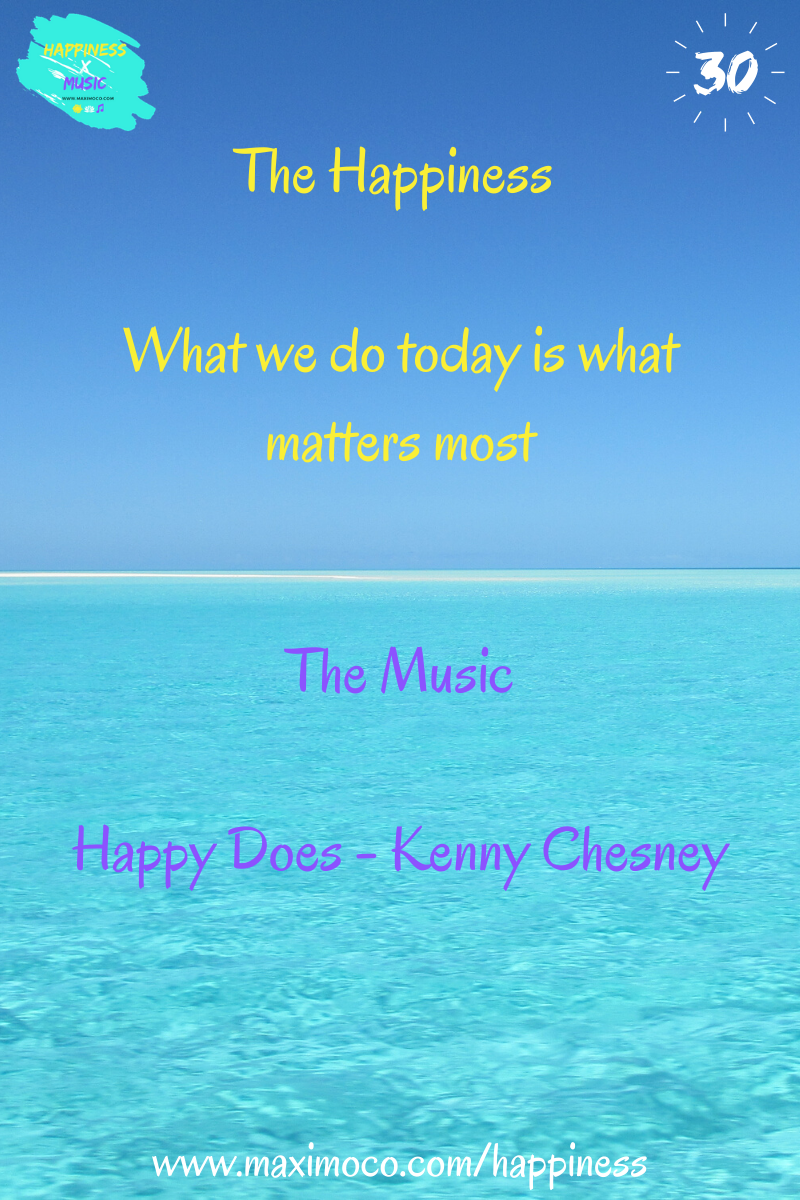

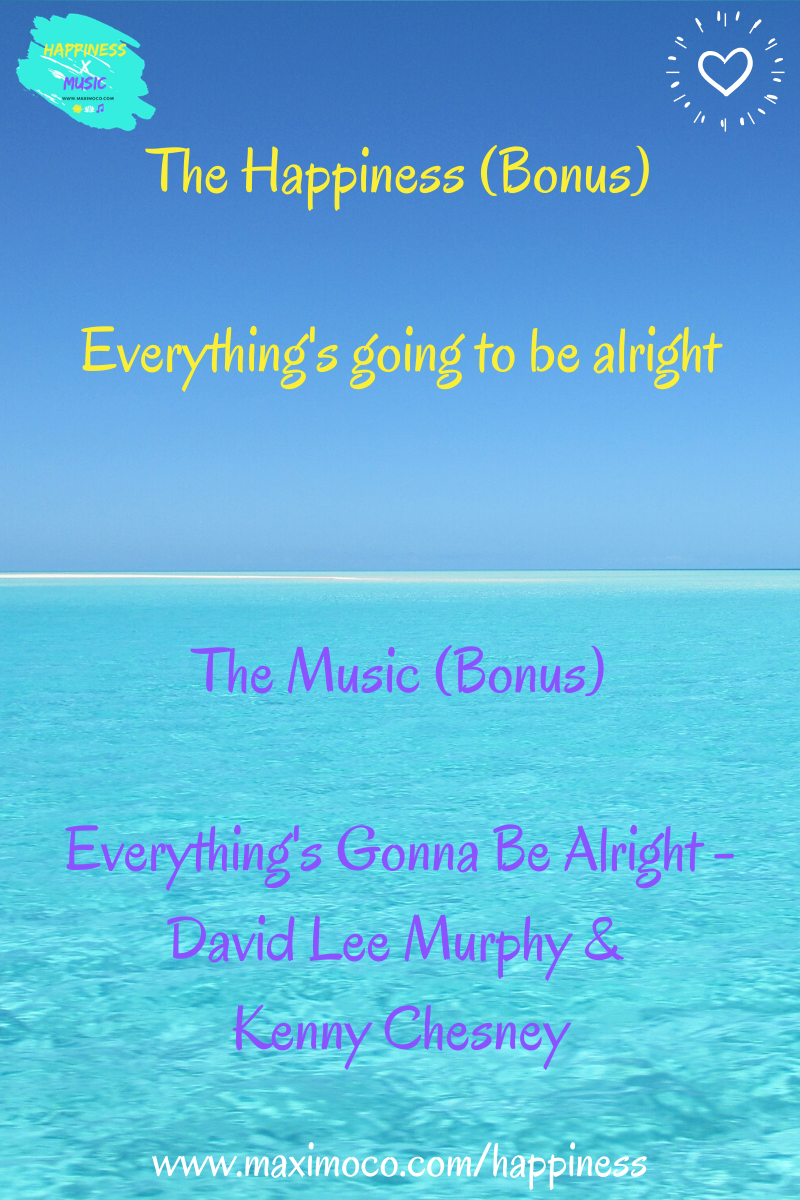

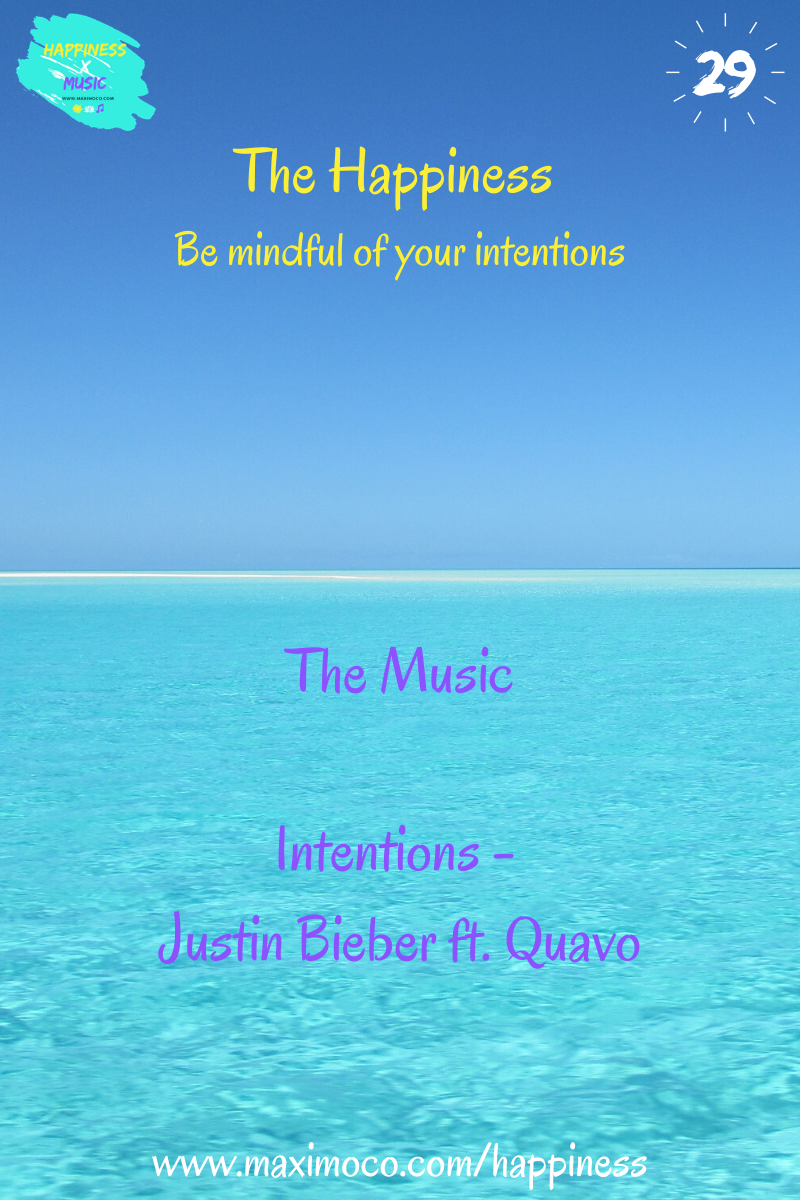
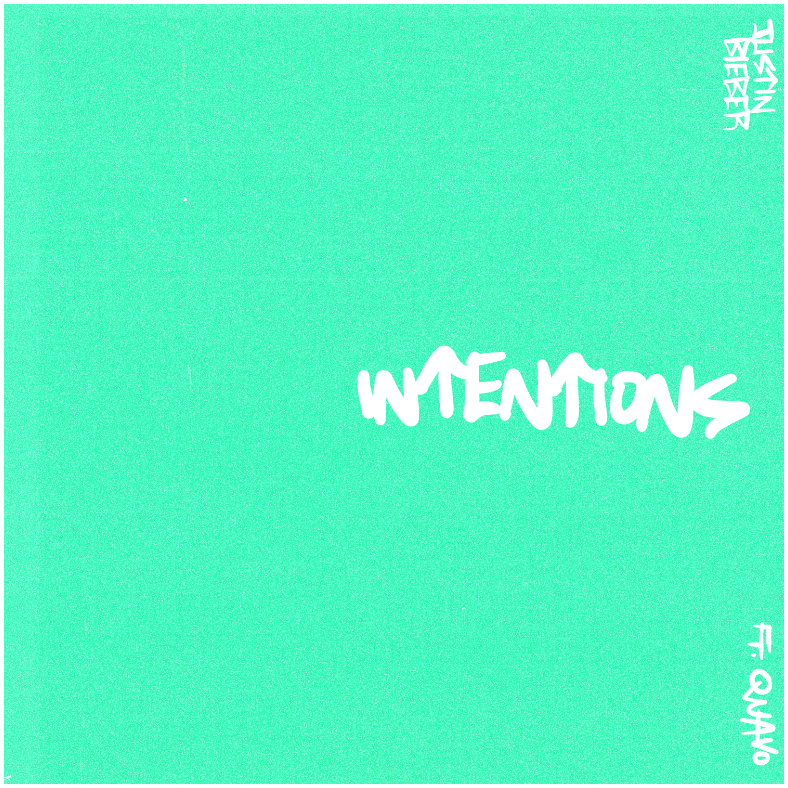
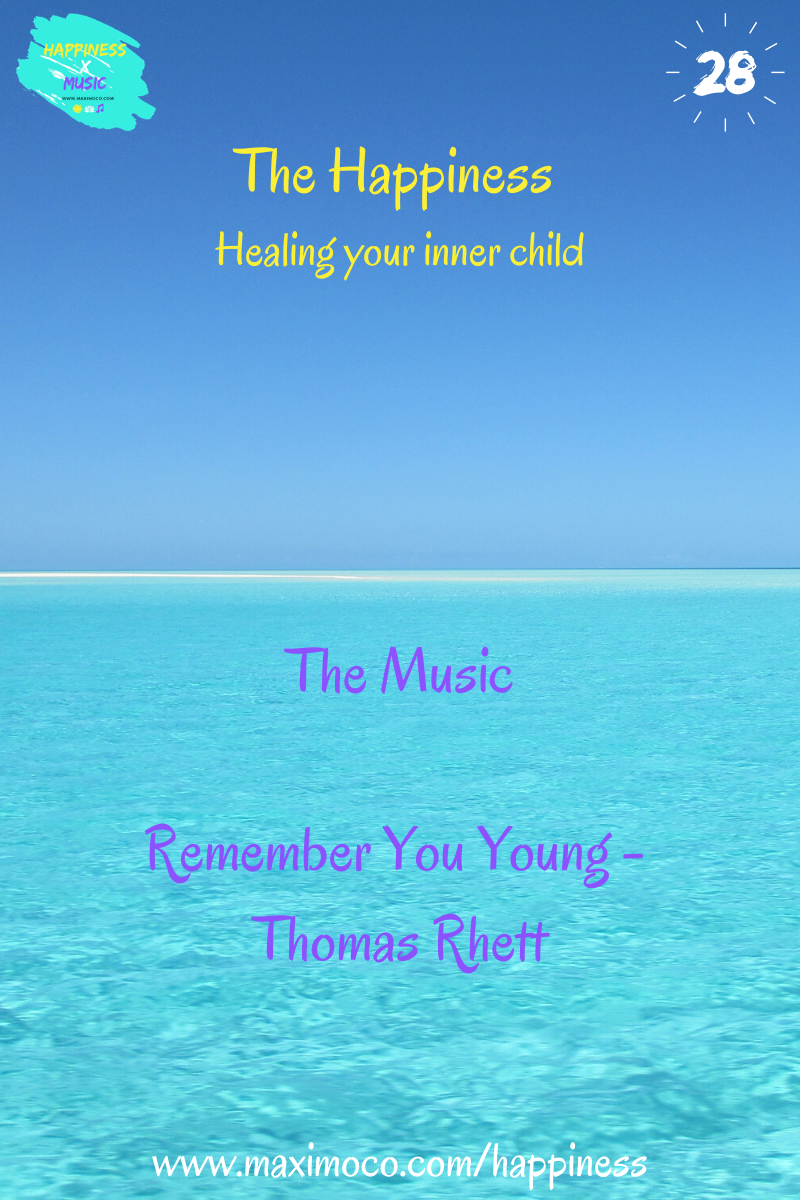

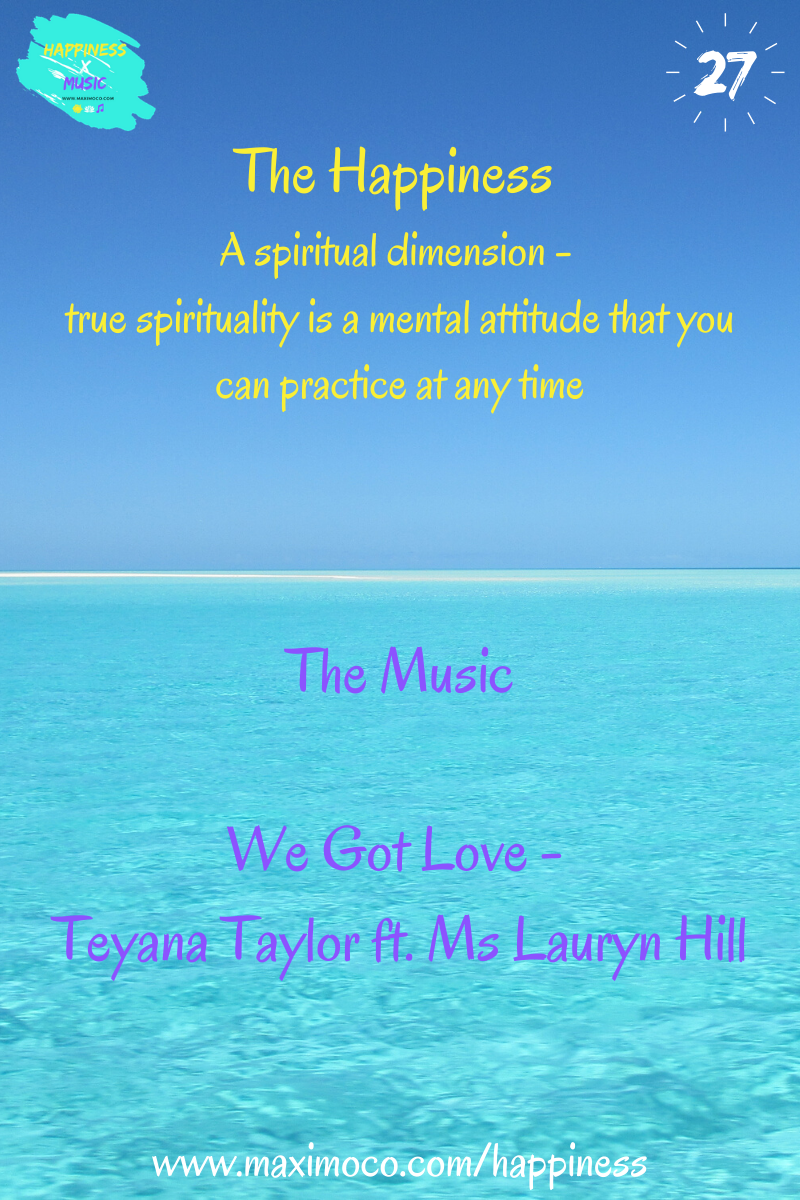
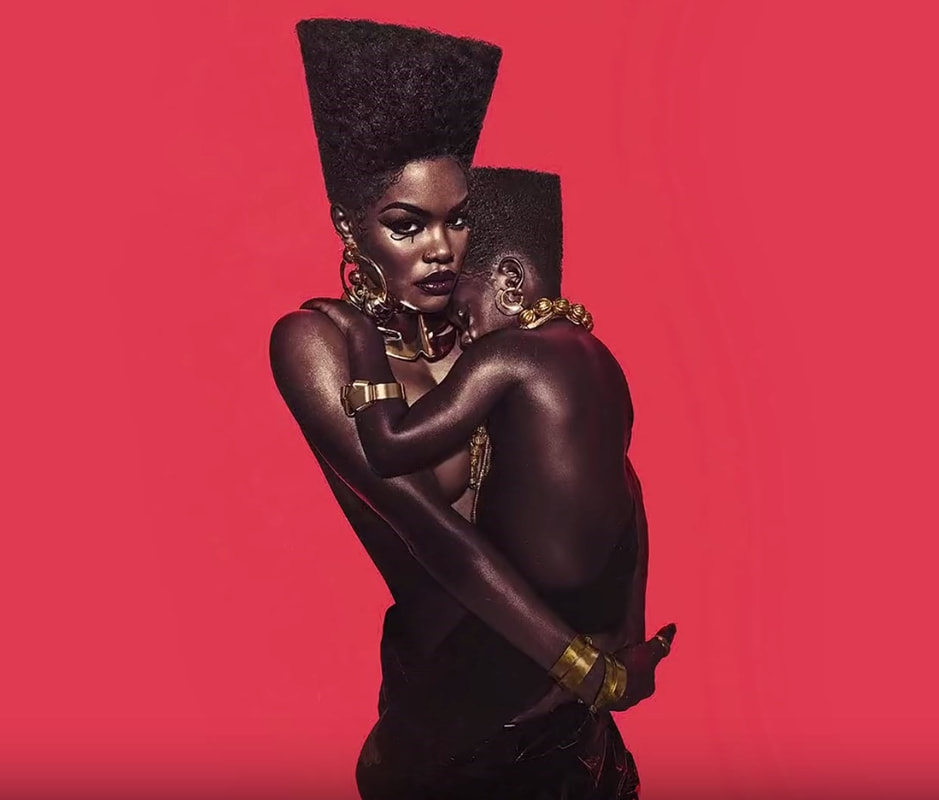

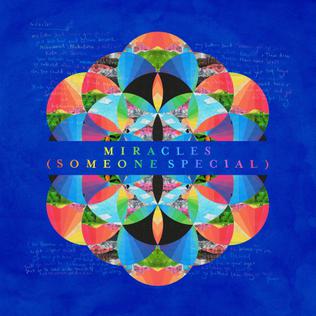


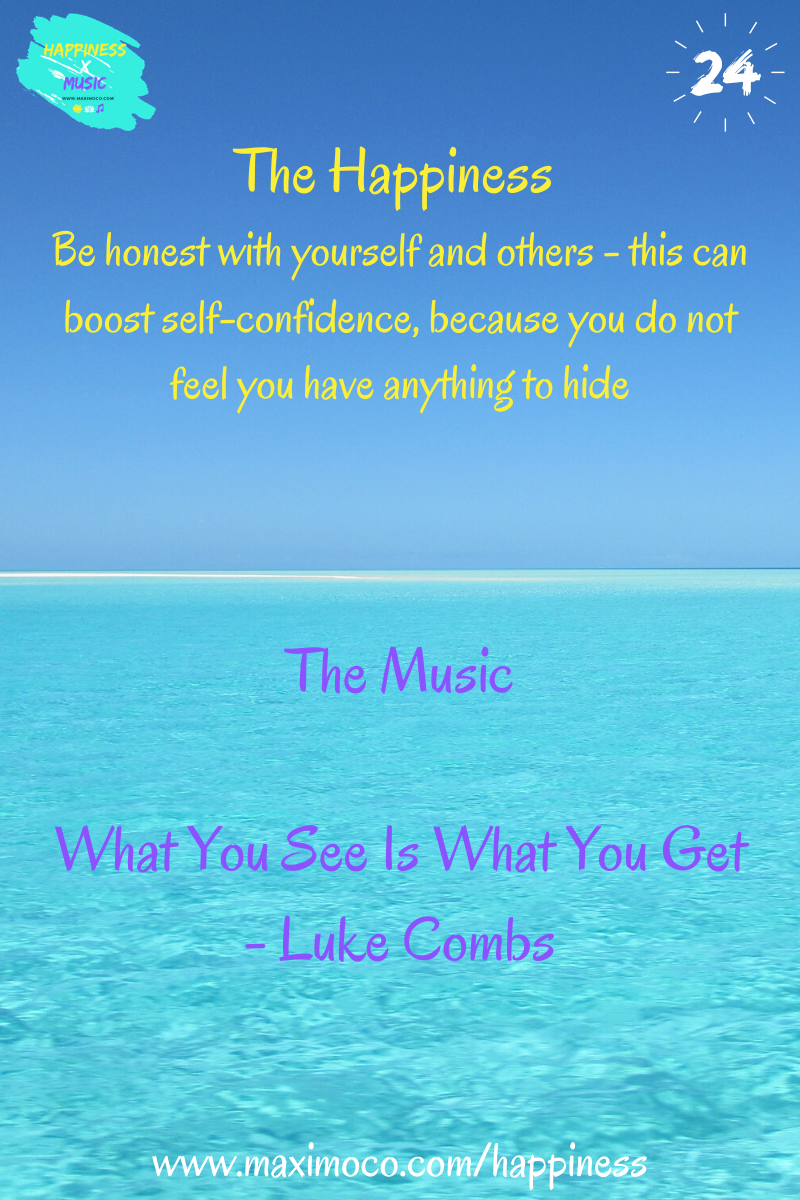

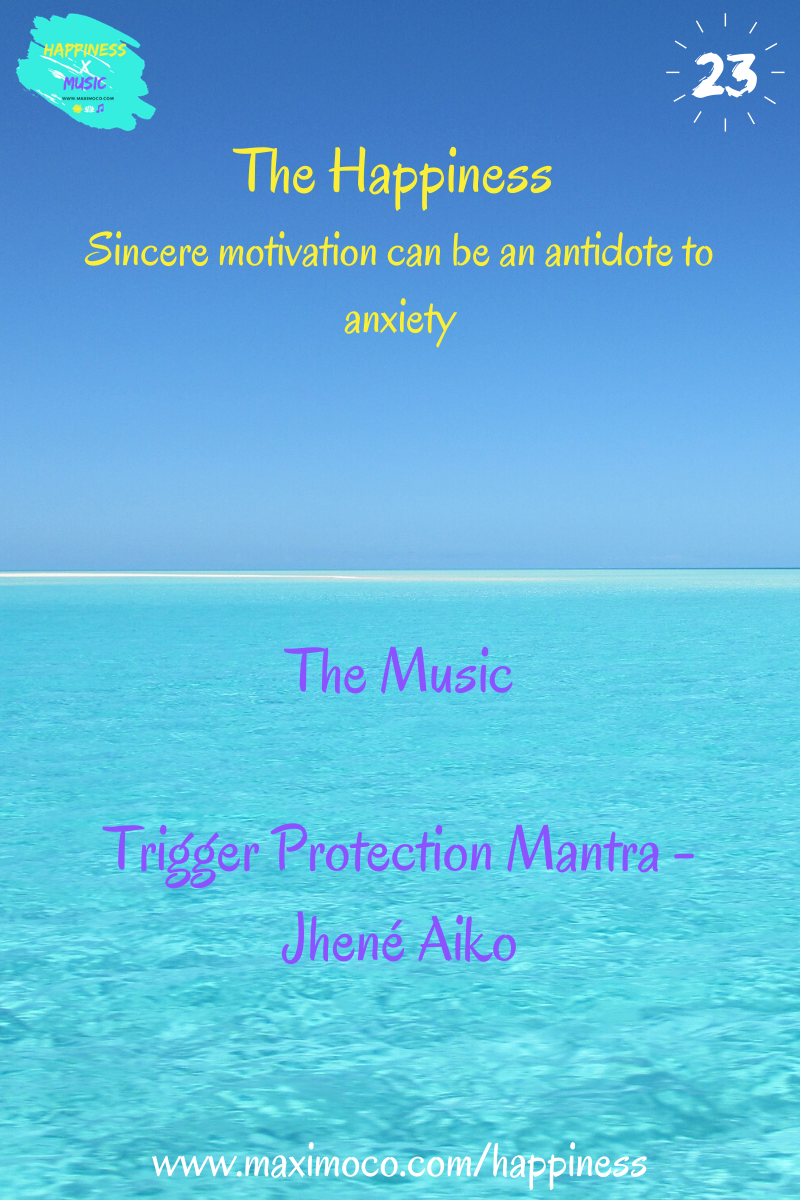

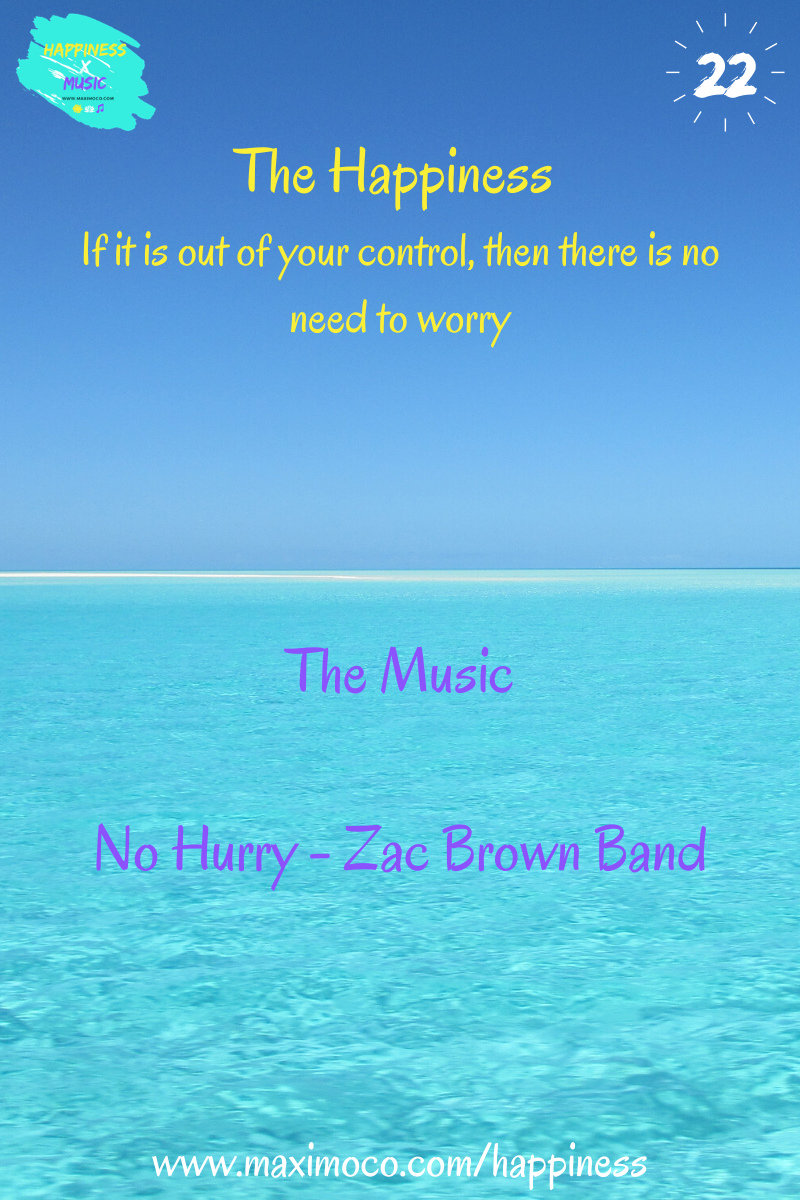
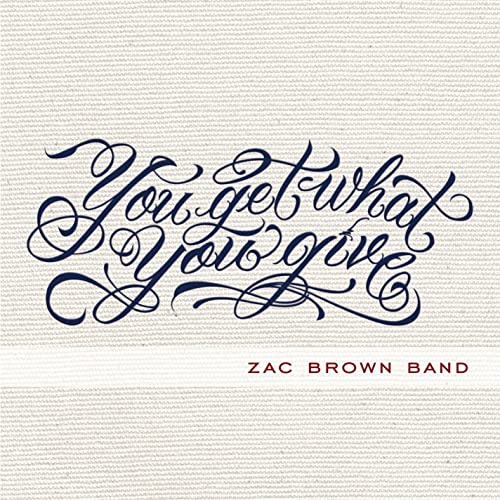
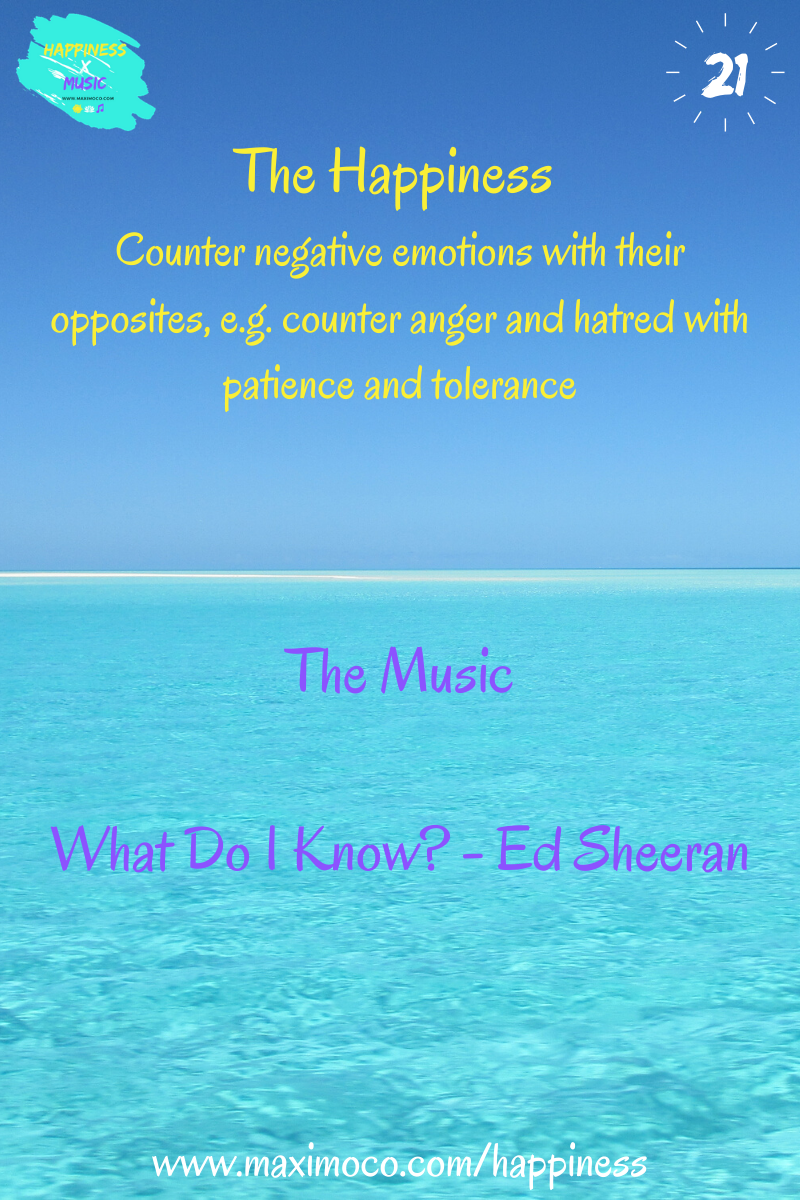


 RSS Feed
RSS Feed